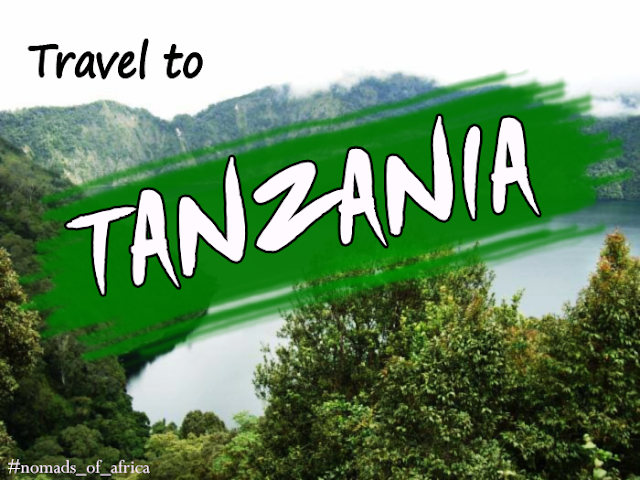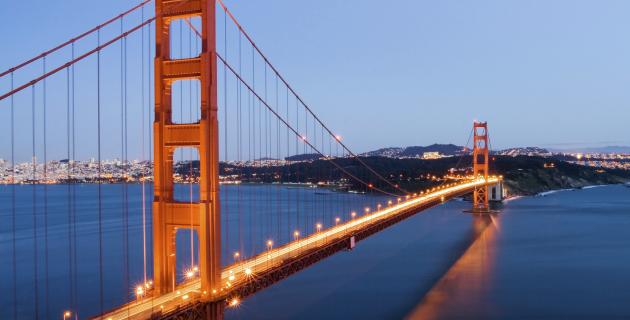Travel to Tanzania
Well in our journey to take a ride all over the world , i
was thinking about creating a journey talking only about the African beauty ,
why don’t we Call it « Nomads of Africa »
The first country that we are going to visit is Tanzania ,
after being in Oran,Algeria .
Tanzania my nomad
friends is that country that nobody appreciate and give it her rights, at first
when you hear the word Tanzania Your picture about it will be blur, specially when
add to you that it desalinated in Africa , you will boo at me and say that it’s
a desert and nothing special in it.
Well you are wrong
.after this article you will change your mind totally about all Africa
and specially Tanzania.
Language
Tanzanian people use
Swahili and sometime English in there everyday business , Swahili is also a
language used in Kenya .
If you know some English words you won’t get lost because English is widely spoken. Tanzanian
people are always appreciative if you talk with them by Swahili, just some
basic phrases and they will love you.
Where to get some
Swahili phrases ? in the end of the article
Food
(beef,fish and chicken)
meat in general is what defined Traditional Tanzanian food, using vegetable,
rice flour and water and it’s eaten by hand .
Seafood is what Tanzanians
prefers and love, because Tanzania is a culinary heaven for freshly caught fish
lovers .
Vegetarians are also
well catered for in Tanzania. With fresh fruits such as mangoes, coconuts, and
pineapples available in abundance. With Tanzanian food so rich in vegetables,
legumes, and rice – you’ll be able to find delicious vegetarian food without
any trouble.
No matter effect, the Tanzanian food is defenetly safe to eat and to love. As an advise try to avoid
cold ,pre-prepared foods.
Water
In Tanzania,It is advisable to use tap water only for showering or washing your clothes. Because
the tap water in Tanzania is not quite safe to drink.
Use only filtered or bottled water for drinking and that’s just to avoid the health problems. Bottled water is always available in Tanzania and in a cheap prize.
Money,credit cards and ATMs
Currency
The official Tanzanian
currency is the Tanzanian Shilling. They have coins for 50, 100, and 1000
shillings; and notes for 500, 1000, 2000, 5000, and 10,000 shillings.
The US Dollar is
widely used, but may not be accepted in some establishments. It is also
important to note that most businesses that do accept US currency will not do
so if it is torn or wrinkled.
Notes must not be
older than 2006, as local businesses will automatically reject these due to a
past counterfeiting problem.
Banks & Currency Exchange
Currency can be
exchanged at banks, currency exchange offices (which are plentiful in the
city), and in most hotels. Hotels generally offer the least favorable exchange
rates.
Banks in Tanzania are
open from 9am until 3.30pm Monday to Friday, and from 9am until 11am on
Saturdays.
Tax
The tax rate in
Tanzania amounts to 16% for most products and services. There is no process for
reclaiming this amount upon departing the country.
ATMs
ATMs that accept both
Visa and MasterCard are available in most cities. You will be able to withdraw
from your accounts in local (Tanzanian shillings) currency by entering your
PIN. The daily withdrawal limit amounts to roughly $300 USD.
Be sure to alert your
bank that you will be traveling to Africa. Many banks will deem transactions
made out of your native country as suspicious, and may lock access to your
accounts if you have not forewarned them.
Credit Card
International credit
cards (especially Visa, MasterCard, American Express, and Thomas Cook) are
accepted in most stores, restaurants, hotels, camping sites, lodges, car rental
companies, etc. Many smaller stores will not have EFTPOS facilities, so it is
generally better to carry cash.
Credit cards typically
attract a 5-15% tax.
Traveler’s Cheques
Traveler’s cheques are
not accepted anywhere in Tanzania.
Visas and Passport
To enter Tanzania all you need is a valide
transport and Tanzanian visa.
Who needs a visa?
With the exception of
Hong Kong, Jamaica, Barbados, Malaysia, and roughly a dozen African nations;
everybody entering Tanzania is required to have a tourist visa.
Passport
To enter Tanzania,
you’ll also need a passport with at least six months validity remaining. If you
are planning to apply for a visa upon arrival, you will also need two free,
adjacent pages remaining in your passport.
How to obtain a visa
Visas are available
upon arrival in Tanzania, whether you’re landing at the airport or are making a
border crossing.
The cost of a visa
upon arrival is $50 for non US citizens, and $100 for US citizens. This should
be paid in USD. Other currencies are not accepted.
If you have any
further questions about the visa process, please don’t hesitate to contact us. That’s
what we’re here for!
Tipping
Tipping is customary
in Tanzania, and is very much a part of the incomes of many people in the
hospitality and tourism industry.
As a general rule of
thumb, tipping for satisfactory service should be as follows:
- · Safari and Kilimanjaro climbing guides:
$$20 per person per day.
- · Cooks, Porters, Caddies etc.: $15 per
person per day.
Safety
Tanzanian Safari is
generally very safe, because Tanzania is considered as one the safest countries
in Africa and a peaceful area, however you should you should be careful on the
road you never know what’s will happen. Criminal activities got it place in
Tanzanian society just like any other country all over the world.
Don't show your
valuable items in public that’s will leave an unwanted attention to you, thief and pocket steallers are widely spread in the touristic areas, so pay attention
and be cautions when you are in the touristic areas and cities.
It is advised to your
valuable (credit cards, electronics and Money…) in your hotel room safe and
secure.
It is always a good
idea to make copies of all of your important documents and keep them in your
luggage.
Rules and Regulations
Tanzania, like all
countries, has rules and laws that need to be followed. These include:
· It is illegal to
sunbathe topless;
· It is illegal to
urinate in public;
· The buying, selling,
and use of drugs is illegal;
· It is advisable not
to talk on the telephone while inside a bank;
· It is forbidden to
take plants, animals, seeds, minerals, archaeological finds, corals, ivory, or
sea turtle shells out of Tanzania;
· Without prior
authorization, you should not photograph the President or certain public
facilities such as military bases, airports, bridges, police stations etc.
Dress Code
There is no dress code
for safari, however it is advised that you were inconspicuous clothes in brown,
green, beige, khaki, or other neutral colors so as not to draw attention to
yourself or frighten the animals away.
As driving distances
can be quite long while on safari, it is advisable that you dress lightly and
comfortably. With evenings able to get quite cold, it is also advisable to
bring along warmer clothes.
Guests of certain
lodges may also be expected to wear trousers and collared shirts for dinner
(for men) or dresses (for women)
Tanzania is a
conservative country, so don’t dress provocatively.
Internet and Telephones
The international code
for calling Tanzania is +255
You can find Internet
cafes in Dar Es salaam, Karatu,and Arusha. Approximately all of Tanzanian
composites and lodges offer internet and phone services.
Postal service
In Tanzania there is
no problem at all in sending and receiving letters,. And by Fax,email,and
internet are offered in most hotels, , you can say that the postal services is
well organized.
You can buy stamps at
the post office, souvenir shops, and in most hotels.
Animals and Safari
Never feed animals
while you are in safari. And try to remain as quiet as you can and still as
possible as not to startle the animals.
When it comes to Tanzanian Safari guides you should always listen to there
instructions because they are experts and, and will advise how best to act and
to survive.
Never get out from the
vehicle. You never know who is waiting for you under the hidden grass.
Useful Swahili Phrases
• Karibu: Welcome.
• Habari/Hujambo: Hello.
• Habari?/Habari yako?: How are
you?
• Nzuri: Good. Standard reply to
how are you.
• Samahani: Sorry.
• Asante: Thank you.
• Chakula: Food.
• Rafiki: Friend.
• Hapana: No.
• Ndio: Yes.




Comments
Post a Comment